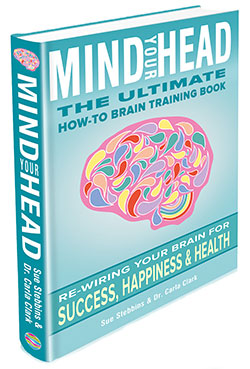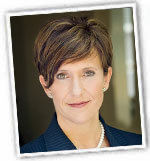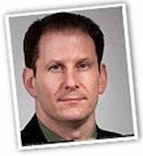On Memory and Reminiscence
Aristotle
Page 2
Source: http://classics.mit.edu/Aristotle/memory.html
The opposite (sc. to the case of those who at first do not recognize their phantasms as mnemonic) also occurs, as happened in the cases of Antipheron of Oreus and others suffering from mental derangement; for they were accustomed to speak of their mere phantasms as facts of their past experience, and as if remembering them. This takes place whenever one contemplates what is not a likeness as if it were a likeness.
Mnemonic exercises aim at preserving one's memory of something by repeatedly reminding him of it; which implies nothing else (on the learner's part) than the frequent contemplation of something (viz. the 'mnemonic', whatever it may be) as a likeness, and not as out of relation.
As regards the question, therefore, what memory or remembering is, it has now been shown that it is the state of a presentation, related as a likeness to that of which it is a presentation; and as to the question of which of the faculties within us memory is a function, (it has been shown) that it is a function of the primary faculty of sense-perception, i.e. of that faculty whereby we perceive time.
Part 2
Next comes the subject of Recollection, in dealing with which we must assume as fundamental the truths elicited above in our introductory discussions. For recollection is not the 'recovery' or 'acquisition' of memory; since at the instant when one at first learns (a fact of science) or experiences (a particular fact of sense), he does not thereby 'recover' a memory, inasmuch as none has preceded, nor does he acquire one ab initio. It is only at the instant when the aforesaid state or affection (of the aisthesis or upolepsis) is implanted in the soul that memory exists, and therefore memory is not itself implanted concurrently with the continuous implantation of the (original) sensory experience.
Further: at the very individual and concluding instant when first (the sensory experience or scientific knowledge) has been completely implanted, there is then already established in the person affected the (sensory) affection, or the scientific knowledge (if one ought to apply the term 'scientific knowledge' to the (mnemonic) state or affection; and indeed one may well remember, in the 'incidental' sense, some of the things (i.e. ta katholou) which are properly objects of scientific knowledge); but to remember, strictly and properly speaking, is an activity which will not be immanent until the original experience has undergone lapse of time. For one remembers now what one saw or otherwise experienced formerly; the moment of the original experience and the moment of the memory of it are never identical.
Again, (even when time has elapsed, and one can be said really to have acquired memory, this is not necessarily recollection, for firstly) it is obviously possible, without any present act of recollection, to remember as a continued consequence of the original perception or other experience; whereas when (after an interval of obliviscence) one recovers some scientific knowledge which he had before, or some perception, or some other experience, the state of which we above declared to be memory, it is then, and then only, that this recovery may amount to a recollection of any of the things aforesaid. But, (though as observed above, remembering does not necessarily imply recollecting), recollecting always implies remembering, and actualized memory follows (upon the successful act of recollecting).
But secondly, even the assertion that recollection is the reinstatement in consciousness of something which was there before but had disappeared requires qualification. This assertion may be true, but it may also be false; for the same person may twice learn (from some teacher), or twice discover (i.e. excogitate), the same fact. Accordingly, the act of recollecting ought (in its definition) to be distinguished from these acts; i.e. recollecting must imply in those who recollect the presence of some spring over and above that from which they originally learn.
Acts of recollection, as they occur in experience, are due to the fact that one movement has by nature another that succeeds it in regular order.
If this order be necessary, whenever a subject experiences the former of two movements thus connected, it will (invariably) experience the latter; if, however, the order be not necessary, but customary, only in the majority of cases will the subject experience the latter of the two movements. But it is a fact that there are some movements, by a single experience of which persons take the impress of custom more deeply than they do by experiencing others many times; hence upon seeing some things but once we remember them better than others which we may have been frequently.
Whenever therefore, we are recollecting, we are experiencing certain of the antecedent movements until finally we experience the one after which customarily comes that which we seek. This explains why we hunt up the series (of kineseis) having started in thought either from a present intuition or some other, and from something either similar, or contrary, to what we seek, or else from that which is contiguous with it. Such is the empirical ground of the process of recollection; for the mnemonic movements involved in these starting-points are in some cases identical, in others, again, simultaneous, with those of the idea we seek, while in others they comprise a portion of them, so that the remnant which one experienced after that portion (and which still requires to be excited in memory) is comparatively small.
Thus, then, it is that persons seek to recollect, and thus, too, it is that they recollect even without the effort of seeking to do so, viz. when the movement implied in recollection has supervened on some other which is its condition. For, as a rule, it is when antecedent movements of the classes here described have first been excited, that the particular movement implied in recollection follows. We need not examine a series of which the beginning and end lie far apart, in order to see how (by recollection) we remember; one in which they lie near one another will serve equally well. For it is clear that the method is in each case the same, that is, one hunts up the objective series, without any previous search or previous recollection. For (there is, besides the natural order, viz. the order of the pralmata, or events of the primary experience, also a customary order, and) by the effect of custom the mnemonic movements tend to succeed one another in a certain order. Accordingly, therefore, when one wishes to recollect, this is what he will do: he will try to obtain a beginning of movement whose sequel shall be the movement which he desires to reawaken. This explains why attempts at recollection succeed soonest and best when they start from a beginning (of some objective series). For, in order of succession, the mnemonic movements are to one another as the objective facts (from which they are derived). Accordingly, things arranged in a fixed order, like the successive demonstrations in geometry, are easy to remember (or recollect) while badly arranged subjects are remembered with difficulty.
Recollecting differs also in this respect from relearning, that one who recollects will be able, somehow, to move, solely by his own effort, to the term next after the starting-point. When one cannot do this of himself, but only by external assistance, he no longer remembers (i.e. he has totally forgotten, and therefore of course cannot recollect). It often happens that, though a person cannot recollect at the moment, yet by seeking he can do so, and discovers what he seeks. This he succeeds in doing by setting up many movements, until finally he excites one of a kind which will have for its sequel the fact he wishes to recollect. For remembering (which is the condicio sine qua non of recollecting) is the existence, potentially, in the mind of a movement capable of stimulating it to the desired movement, and this, as has been said, in such a way that the person should be moved (prompted to recollection) from within himself, i.e. in consequence of movements wholly contained within himself.
But one must get hold of a starting-point. This explains why it is that persons are supposed to recollect sometimes by starting from mnemonic loci. The cause is that they pass swiftly in thought from one point to another, e.g. from milk to white, from white to mist, and thence to moist, from which one remembers Autumn (the 'season of mists'), if this be the season he is trying to recollect.
We Make it Easy to Succeed
Successwaves, Intl.
Brain Based Accelerated Success Audios
 |






